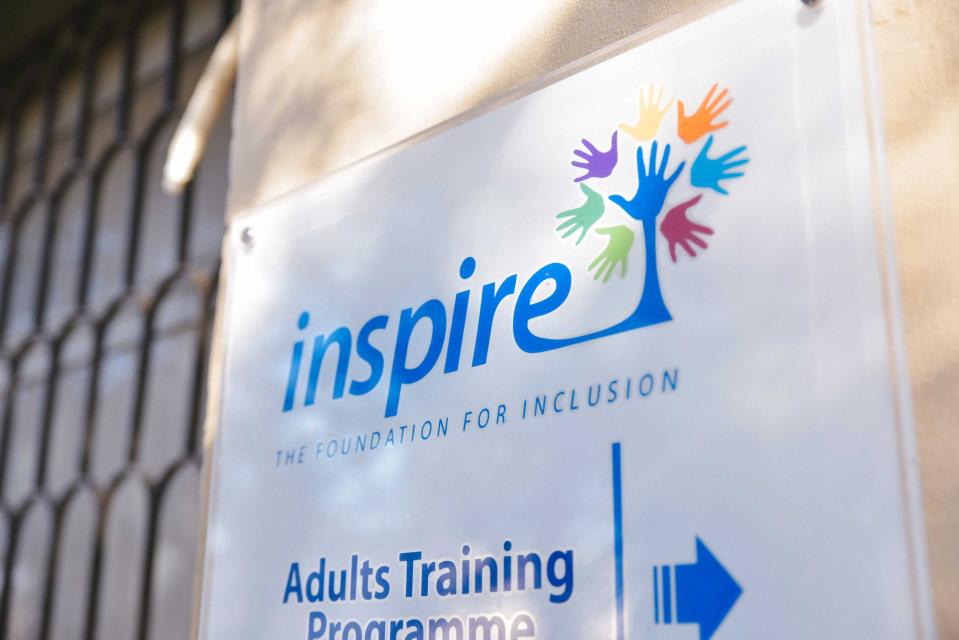To the masses, it may be all about chocolates, cards and red roses. But for many, Valentine's Day raises questions about our society's shared notions of the ideal romantic relationship. Romeo and Juliet? Jane Eyre and Rochester? Mr Darcy and Elizabeth? More modern thinkers might offer Christian Grey and Anastasia Steele. Worthy examples, all. Yet what do these tales tell us about our assumptions? Besides many other stereotypes, every one of these fictional lovers is without a disability.
Some entities in Malta are working hard to dispel the myths and taboos surrounding relationships - particularly about those with intellectual learning disabilities. Naya Markomichali, Team leader at the Inspire Foundation for Inclusion has been working in the field of disability for 20 years. "It's time to break common misconceptions, starting with education and awareness. People with disabilities have the right to fall in love and have intimate relationships. We have an obligation to support them."
Last year Naya successfully ran the "Myself, My Body" project along with Lindsey Meliak at the Inspire Foundation for Inclusion. The pilot project saw 18 individuals with learning difficulties come together to attend sessions regarding the development of a "healthy, safe and happy self" tackling topics such as health, puberty, menstruation, sexual orientation and intercourse. In addition, parents and caregivers were also given the option to attend group sessions to discuss broaching such topics in a safe environment. The project was a roaring success. Designing such a scheme was no easy feat and required experts such as Dr Clare Azzopardi Lane, and research director Richard Mills from AT- Autism UK.
"What's fundamental for any such programme is to cater for the individual needs of every participant attending and for this reason we conduct an initial assessment which helps us understand the current level of knowledge and comprehension in order to provide an adjusted curriculum. It must be needs-based, no two persons are the same, no two cases of disability are the same, nor the family support network surrounding them" adds Naya.
Although the project has culminated, great lessons can be gained from the experience. Naya emphasises the importance of ongoing awareness work within the Maltese Islands. "We are all human, with human needs, we should not deny anyone the right to a relationship - but instead facilitate a solid ground for them to decide if that is something they wish to pursue".
Consequently, Naya and her team at Inspire are working on a meeting hub to promote social activities for those with intellectual disabilities. "Our service users have the desire and the right to have a fulfilling social life, to go to the cinema or for a coffee just like anyone else. We are doing our utmost to support social relationships, and that includes romantic relationships. People with learning disabilities are often so far away from having a sexual partner; they need support to meet someone first. We need to help people have meaningful relationships, friendships and possibly romantic relationships, if they wish. We also have service users with disabilities in existing loving, romantic and possibly sexual relationships, and we should not deny that from them."
Of course, many questions could be asked, what about vulnerability, what about mental capacity? Naya stresses that empowering and educating the young individuals under her remit, and the support network surrounding the individual is paramount. "Take for example the case of language, we all call our intimate parts different words, why should we lock adults with learning disabilities to language exclusively for children - when there may be age-appropriate films with an entirely different vocabulary. This is something we see often. We need to be clear, concise and ensure we are using the correct age-appropriate terminology."
The comments from learning disabled people gathered by Naya and her team at Inspire underline just how vital it is to achieve progress in this area. When asked about why relationships are important, one participant replied: "Sometimes I get lonely, and I think if I've got somebody who I could trust, it will make me happier."
As Naya states, "It is people's human right to have a relationship. It shouldn't be a 'nice to have', but something that adds value to people's lives. We are all incredibly social beings; if you don't see someone in that way, then you don't see them as human."

Moreover, Article 23 of the UN convention for rights of a person with a disability remarks on the importance of state parties, "they must take effective and appropriate measures to eliminate discrimination against persons with disabilities in all matters relating to marriage, family, parenthood and relationships, on an equal basis with others."
The key to a healthy relationship isn't being able bodied or having a high IQ. Having a good friendship has been the starting point in many long-term relationships - disabled or not. Use Valentine's Day this year to spread a little love of a different kind - it's time to accept that should others have a disability; they are just as lovable as the next person.
The Inspire Foundation draws on many years of experience in educational, therapeutic, social and recreational needs of persons with disabilities. They specialise in aiding those on the autism spectrum, having profound multiple learning difficulties and those with behaviour that challenges. For upcoming projects follow www.inspire.org.mt